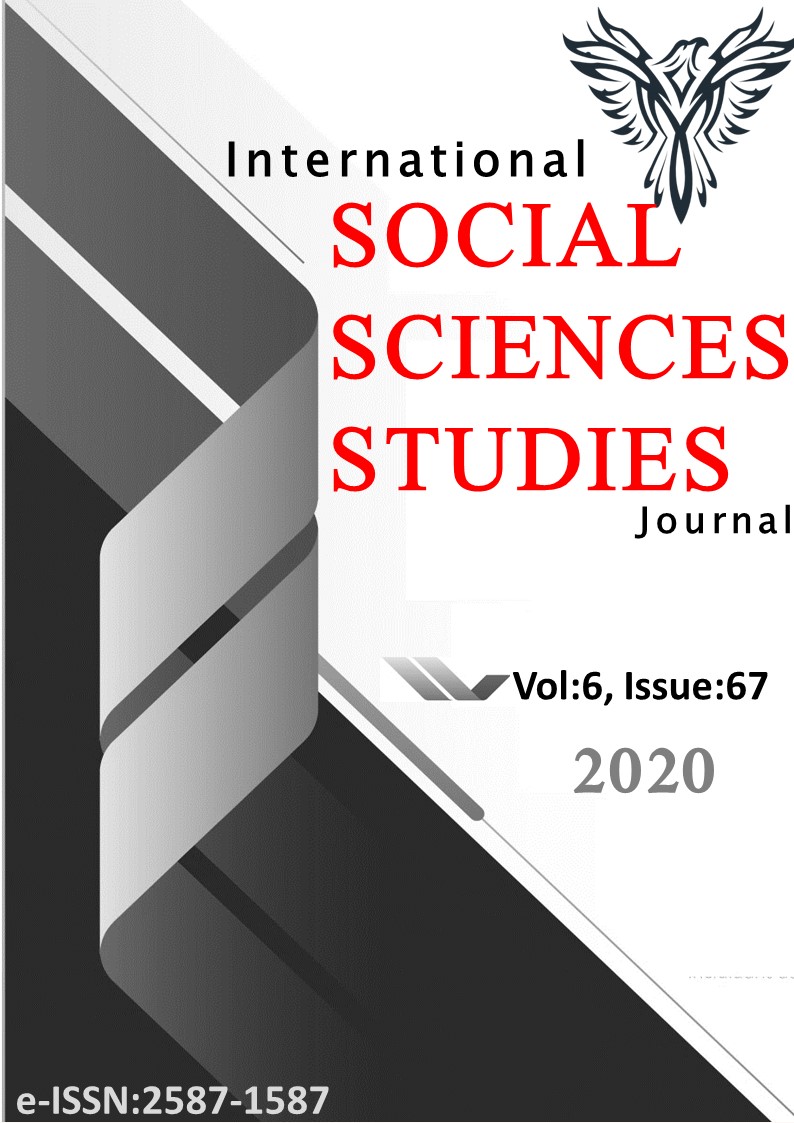Author :
Abstract
Bu çalışmanın amacı sosyal bilgiler öğretmen adaylarının sosyal bilgiler öğretme öğrenme anlayışlarını incelemektir. Çalışma temel nitel araştırma modeli kullanılarak gerçekleştirilmiştir. Çalışma grubunun belirlenmesinde kolay ulaşılabilir örnekleme yöntemi kullanılmıştır. Bu doğrultuda, çalışma grubunda 52 sosyal bilgiler öğretmen adayı yer almıştır. Çalışmanın verileri on dört adet açık uçlu sorunun yer aldığı yarı yapılandırılmış görüş formu ile toplanmıştır. Verilerin analizinde içerik analizi kullanılmıştır. Araştırma bulgularına göre sosyal bilgiler öğretmen adaylarının öğretme, öğrenme, öğrenci ve öğretmenin sınıftaki görevlerine yönelik geleneksel (davranışçı) yaklaşıma ilişkin görüş bildirdikleri sonucuna ulaşılmıştır. Sosyal bilgileri öğrenme öğretme boyutunda ise vatandaşlık aktarımı olarak sosyal bilgiler yaklaşıma ilişkin görüş bildirdikleri ve sosyal bilgilerin öğretiminde yapılandırmacı yaklaşıma ilişkin görüş bildirdikleri görülmüştür. Sosyal bilgiler öğretmen adaylarının sosyal bilgiler öğretim programından güncel olması ve ezberci olmamasına ilişkin beklentileri olduğu sonucuna ulaşılmıştır. Öğretim programı ve öğretim yöntemine ilişkin yapılan tanımların ise alan yazındaki tanımlar ile örtüşmediği görülmüştür. Sosyal bilgiler öğretmen adaylarının lisans öncesi öğretmelerinin kullandıkları öğretim yöntemlerinin olumlu yönlerini örnek alıp olumsuz yönlerinden kaçınarak kendi öğretim yöntemlerini şekillendireceğine ilişkin görüş bildirdikleri sonucuna ulaşılmıştır. Derslerine giren öğretim üyelerinin kullandıkları öğretim yöntemlerinin ise geliştirerek uygulanabileceği, öğretim üyelerinin öğrenmeye katkı sağlayan etkinlikler ve güncel yöntemler kullanıldığı için kendilerinin ileride kullanacağı öğretim yöntemlerini belirlemesinde etkili olacağına ilişkin görüş belirttikleri görülmüştür.
Keywords
Abstract
The aim of this study is to examine social studies teacher candidates' understanding of teaching social studies. The study was carried out using the basic qualitative research model. Convenience sampling method was used to determine the study group. Accordingly, 52 social studies teacher candidates took part in the study group. The data of the study were collected through a semi-structured opinion form with fourteen open-ended questions. Content analysis was used in the analysis of the data. According to the findings of the research, it was concluded that the pre-service teachers of social studies expressed their views on the traditional (behavioral) approach to teaching, learning, students and teachers in the classroom. In the teaching and learning dimension of social studies, it was observed that they expressed their views on the social studies approach as citizenship transfer and they expressed their views on the constructivist approach in the teaching of social studies. It was concluded that the prospective teachers of social studies are up to date from the social studies curriculum and not to be memorized. The definitions made regarding the curriculum and teaching method did not coincide with the definitions in the literature. It was concluded that the pre-service teachers of social studies expressed their opinions about the positive aspects of the teaching methods used by their undergraduate teachers and by avoiding the negative aspects; they would shape their own teaching methods. It has been observed that the teaching methods used by the lecturers who attend their lessons can be developed and applied, and because the activities and current methods that contribute to learning are used, they will be effective in determining the future teaching methods





